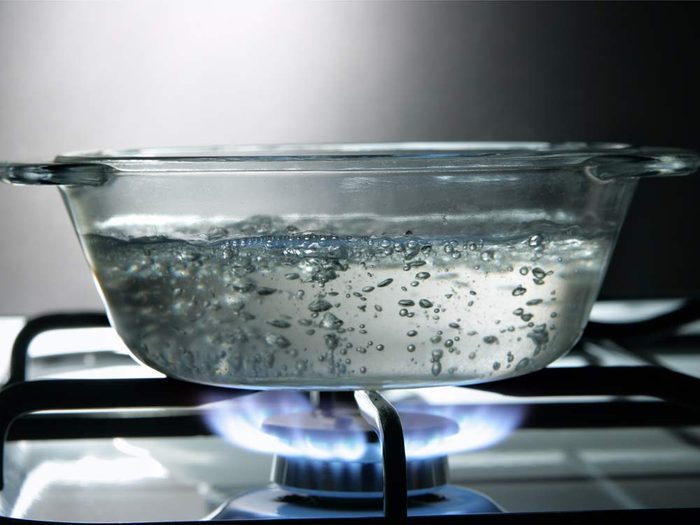
Cooking Equipment
When a pot or pan overheats or splatters greases, it can take seconds to cause a fire. Stay in the kitchen when cooking, especially if using oil or high temperatures; most kitchen fires occur because people get distracted and leave their cooking unattended. Keep combustibles (e.g. oven mitts, dish towels, paper towels) away from heat sources.
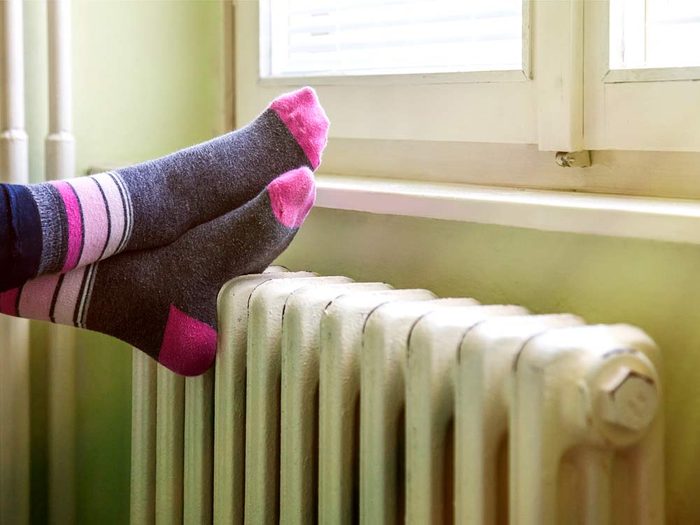
Heating Equipment
Have your furnace inspected annually by a qualified technician, and your chimney cleaned and inspected annually. Keep portable heaters at least one metre away from anything that can burn (including curtains, furniture, and you), and don’t use your heaters to dry shoes or clothes. Install a carbon monoxide alarm to alert you to deadly carbon monoxide gas.
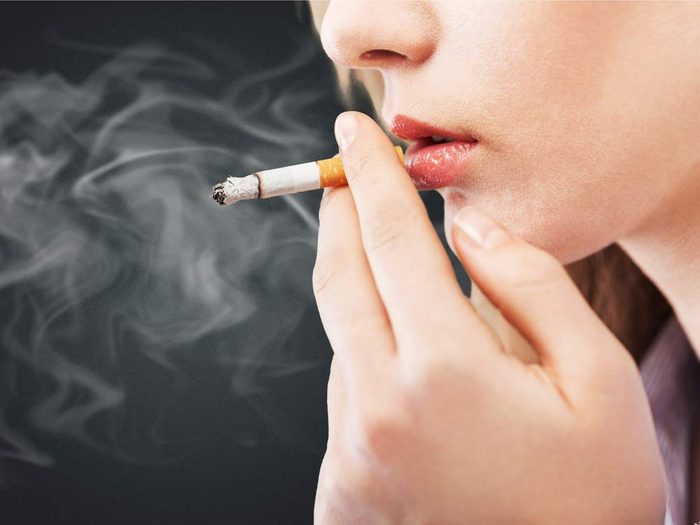
Careless Smoking
Make the bedroom off-limits to smoking, and supervise smokers who may become drowsy (i.e. on medication, drinking) or forget to extinguish their cigarette. Use large, deep ashtrays; never place an ashtray on or near anything that will burn; and check furniture for fallen cigarettes/embers (a butt can smoulder for hours before causing furniture to burst into flames).
12 Ex-Smokers Reveal What Helped Them Actually Quit Smoking for Good.
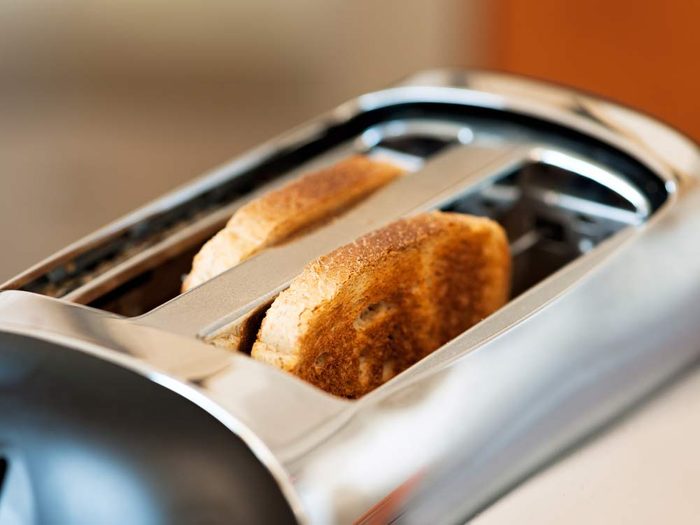
Electrical Equipment
Ensure the following:
- Your electrical appliances don’t have loose or frayed cords/plugs
- Your outlets aren’t overloaded with plugs
- You’re not running electrical wires under rugs or heavy furniture
- You’re not overusing an extension cord. Be careful about do-it-yourself electrical projects; many home fires are caused by improper installation, so use a licensed electrician.
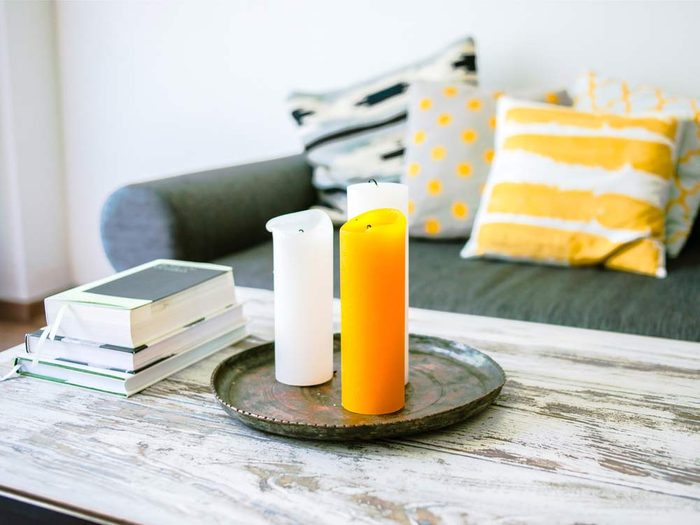
Candles
Keep candles in a sturdy holder on a level surface, away from combustible materials and out of the reach of children or pets. Blow them out before leaving the room.
Overwhelmed by cleaning? Experts share strategies to bust clutter and organize your home one room at a time.
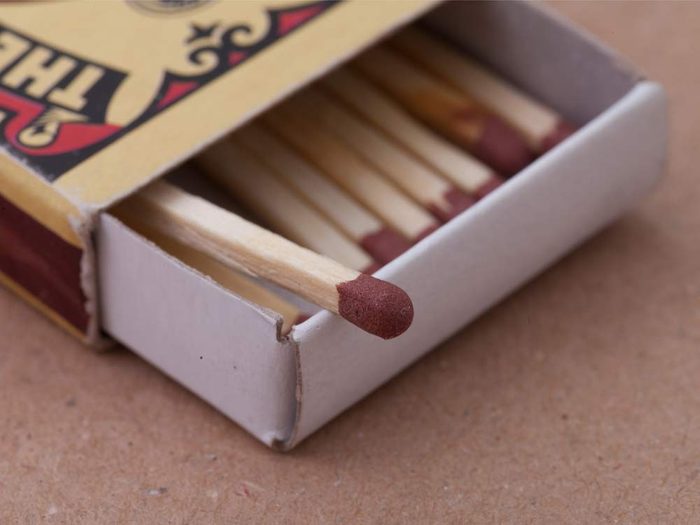
Children Playing with Fire
Children cause fires out of curiosity (what happens when something burns) or mischief (they’re angry, upset or destructive, and fire is a major taboo to break). Kids may be involved in fire play if you find matches or lighters in their room/possession, smell sulphur in their room, and/or find toys or other personal effects that appear melted/singed.
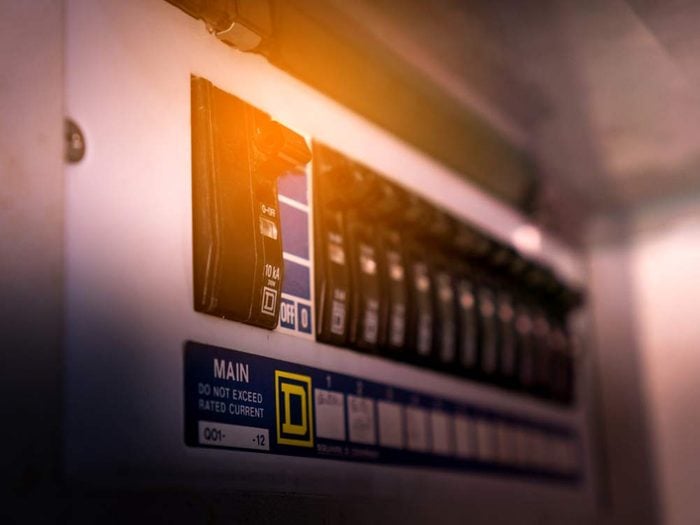
Inadequate Wiring
Older homes and apartments can have inadequate wiring—a fire and an electrical hazard. Some warning signs:
- You have to disconnect one appliance to plug in another
- You have to use extension cords or “octopus” outlets extensively
- Fuses blow or circuit breakers trip frequently
- Lights dim when you use another appliance
Check out these 10 Everyday Emergencies You Need to Know How to Manage.
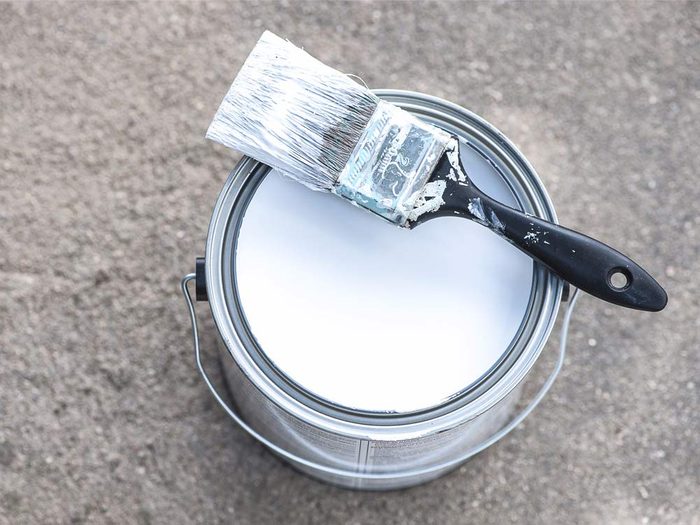
Flammable Liquids
Flammable liquids—fuels, solvents, cleaning agents, thinners, adhesives, paints, and other raw materials—can ignite or explode if stored improperly. The vapours can easily ignite from even just high temperatures or weak ignition sources (one spark of static electricity). Don’t store flammable liquids near a heating source but, ideally, outside the home in a cool ventilated area, in approved containers.
Here are the 10 most popular paint colours on the Canadian market.
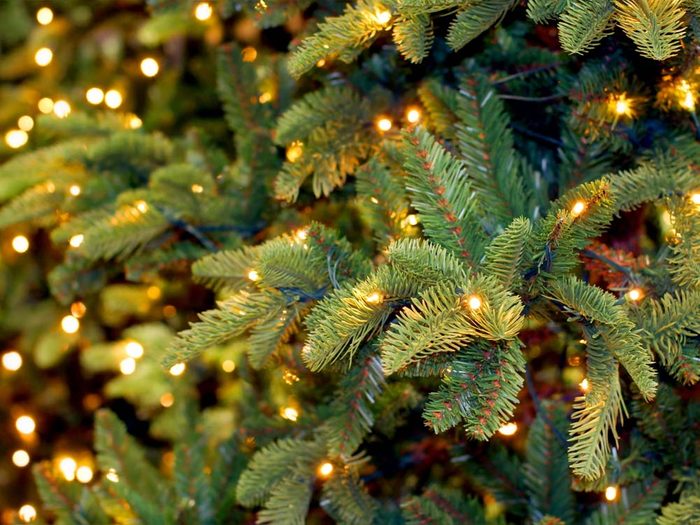
Christmas Trees and Decorations
Keep the tree in a stand that will hold two to three litres of water, and top it up daily. Keep the tree away from all heat sources, including radiators, furnace ducts, television sets and fireplaces. Check decorative lights before placing them on the tree, and discard any frayed or damaged lights/cords. Never place candles on or near the Christmas tree.
Ensure a happy Christmas future with these tips for cleaning ornaments of every kind.
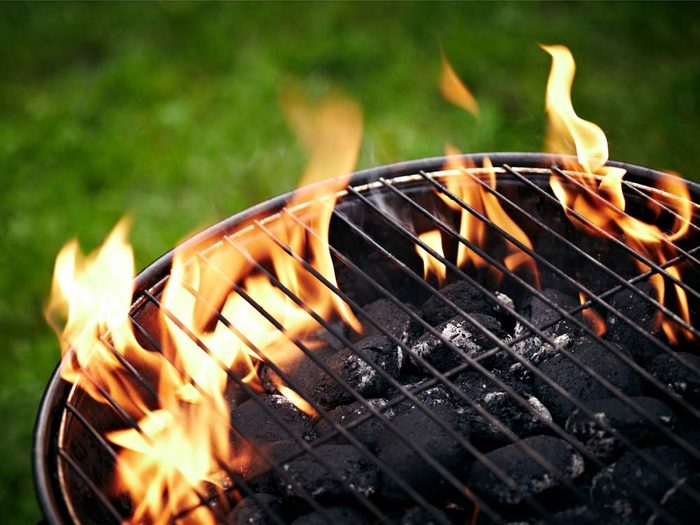
Barbecues
As part of regular maintenance, clean removable parts (inside and out) with soapy water. Spray the connections with soapy water to check for potential leaks; watch if bubbles form when you open the gas. Use barbecues away from your home, deck rails, tablecloths and tree limbs. Use barbecues outdoors, never indoors (including garages).
Check out these 20 Delicious Summer Grilling Recipes.